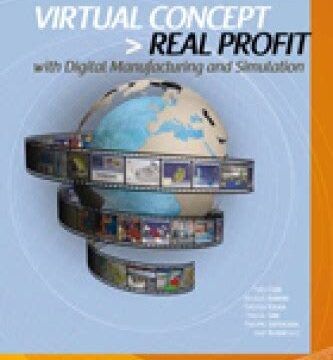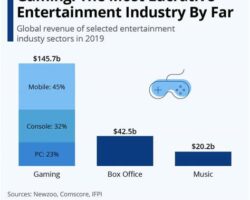Welcome to the cutting-edge intersection of the virtual and the real, where the possibility of leading a second life online is not only a thrilling prospect but also a potentially lucrative one. In a world increasingly dominated by digital interactions and economies, savvy individuals are finding innovative ways to carve out their own slice of virtual success. Whether you’re a gamer, a social media influencer, or just someone intrigued by the potential of online platforms, there are a plethora of opportunities waiting for you. In this comprehensive guide, we will navigate through the expansive landscapes of virtual worlds, uncover how to transform digital skills into tangible earnings, craft an online persona that attracts profit, dive into the emerging market of virtual real estate, and strategize on converting virtual currencies into real-world gains. By the end of this journey, you’ll also learn how to translate your online victories into meaningful real-life opportunities. So buckle up and prepare to embark on a thrilling ride into the profitable realm of your second life.
Exploring the Virtual World: Where to Start
Embarking on a journey into the virtual world can be both exhilarating and daunting, yet knowing where to start is essential for navigating this burgeoning digital landscape with confidence. To begin, one must first identify their objectives within the virtual realm; whether it be for entertainment, education, or professional growth, this initial decision will greatly influence the trajectory of their virtual explorations. Understanding the sheer expanse of the virtual ecosystem is crucial, as it is brimming with a myriad of platforms, each offering unique experiences and opportunities for engagement.
Next, it is advisable to equip oneself with the necessary technological tools and knowledge. This includes familiarizing oneself with various hardware options, such as VR headsets, AR glasses, or simply a robust computer system that can handle graphically intensive applications. Additionally, gaining proficiency with software that enables virtual interaction is equally important; immerse yourself in learning platforms which host virtual environments or dive into online courses that discuss the intricacies of the virtual space. These preparatory steps are pivotal as they form the fundamental scaffolding upon which one can securely climb and gaze out into the vast possibilities of the virtual domain.
Moreover, connecting with communities and networks within the virtual world is not only beneficial for gathering insider information but also for forging meaningful relationships that can guide and support you through your virtual voyage. These communities often congregate in forums, social networks, and within the virtual platforms themselves, creating hotbeds of collaboration, innovation, and shared experiences. By actively participating in these groups, you open doors to insights and trends that can significantly enhance your understanding and navigation of the virtual world’s multifaceted environment.
In conclusion, the initial steps of exploring the virtual world involve setting clear goals, arming oneself with technology and knowledge, and integrating into virtual communities. As one ventures further into the vast expanse of the virtual realm, these foundational elements empower individuals to not only traverse this digital frontier with ease but to also leverage its full potential for personal or professional growth. Therefore, take the leap into the boundless digital universe, keeping these key principles in mind, and prepare to embrace the myriad of opportunities that exist within the virtual world.
Monetizing Virtual Skills: From Hobby to Income
In the expansive realm of the virtual world, many individuals find themselves honing skills that were initially pursued out of sheer passion or as a leisurely hobby. However, the digital age has paved numerous avenues for those to not merely revel in their hobbies, but to transmute them into tangible sources of income. When one crosses this threshold, the key question becomes how to effectively monetize these virtual skills and harness their economic potential.
The transition from amateur to professional can be a formidable expedition, yet it is grounded in understanding the core principles of supply and demand within the virtual marketplace. For instance, imaging enthusiasts might find a lucrative option in offering online photography classes or selling their digital prints, while gaming aficionados could leverage their skills by streaming or participating in eSports tournaments. These skills, when polished and marketed prudently, can thus metamorphose from mere pastimes into substantial mediums of profit.
Beyond individual efforts, collaboration has emerged as a formidable tool for those seeking to capitalize on virtual skills. Platforms that facilitate partnership, such as virtual coworking spaces or social media networks, enable skill holders to amplify their visibility and appeal to a broader audience. This collective approach can significantly increase revenue streams by allowing individuals to engage in joint ventures, cross-promotions, or affiliate marketing strategies, which invariably drive the growth of their virtual business endeavors.
Yet, the journey from converting virtual skills to a sustainable source of income is not without its challenges; it entails a deep understanding of one’s niche, continual upskilling, and keeping abreast with the ever-dynamic digital landscape. Moreover, a strong personal brand is often the cornerstone of commercial success in the virtual realm, establishing trust and recognition amongst clients and peers alike. Ultimately, those who navigate this transformation with strategic planning and persistent effort may find that their once casual pastime has flourished into a rewarding professional career.
Building a Brand in the Virtual Realm: Creating a Profitable Persona
In the ever-evolving digital landscape, establishing a brand identity in the virtual realm can set the foundation for long-term success and profitability. But what does it take to create a persona that resonates with a digital audience? The journey begins with understanding your unique value proposition and how it fits into the vast online ecosystem. Crafting a virtual persona is not merely about a visually appealing avatar but encapsulating the essence of your brand’s message and values in every interaction and digital footprint you leave behind.
Next, engaging with your community is pivotal in fostering a strong brand presence. By nurturing a relationship with your audience through consistent and meaningful content, you create a virtual space that individuals trust and look forward to visiting. Utilize platforms like social media, podcasts, or streaming services to give your brand a voice and a personality that appeals to your target demographic. Remember, in the virtual realm, your persona is the digital handshake that introduces and solidifies your brand’s presence.
A strategy often overlooked in building an online brand is leveraging data analytics. By analyzing the behavior of your online visitors, you can tailor your virtual presence to better suit their preferences, thus making your brand more relatable and engaging. Use the insights gathered to refine your content strategy, optimize your digital offerings, and ensure that your brand stays relevant and ahead of the curve. The ability to adapt and evolve with your audience’s needs is a hallmark of a profitable persona in the virtual space.
Finally, monetizing your virtual brand effectively requires you to innovate and think outside the box. Be it through digital products, virtual services, or online courses, each monetization avenue should align with the core values and strengths of your brand. With the right mix of creativity and strategic planning, your virtual brand can go beyond just gaining followers—it can transform into a self-sustaining entity that generates real income. In essence, building a brand in the virtual realm is an exciting and rewarding experience that requires a thoughtful approach to creating a profitable persona that thrives in the digital age.
Virtual Real Estate: Investing in Digital Properties
In the ever-evolving world of technology, the concept of Virtual Real Estate has taken a prominent position in the investment narratives of savvy entrepreneurs. Much like tangible property investment, investing in digital properties such as websites, domain names, and online marketplaces can yield significant returns. Pioneers in this domain have demonstrated how virtual plots in burgeoning digital landscapes can become lucrative assets, akin to owning a prime piece of land in the heart of a rapidly developing city.
Understanding the dynamics of virtual real estate requires an appreciation for the scarcity and desirability that drive the intrinsic value of digital properties. As the Internet continues to expand, certain digital locations become hotspots for traffic and interaction, making them highly coveted. Those who possess the foresight to acquire such digital assets stand to make substantial gains. Much like traditional real estate, location—or rather, the domain name, user base, and search engine ranking—can be pivotal in the success of a digital property.
Determining the potential of a virtual property investment necessitates a thorough analysis of its revenue-generating capabilities. Monetization strategies in the virtual realm are diverse, ranging from advertising and subscription models to the sale of virtual goods and services. Therefore, the attractiveness of a digital property can be greatly influenced by its capacity to adapt and capitalize on various monetization avenues. Moreover, the advent of blockchain technology and non-fungible tokens (NFTs) has introduced a novel layer to virtual real estate, where digital properties can gain value through verifiable ownership and rarity, further enhancing the allure for potential investors looking to diversify their portfolios into the virtual economy.
As with any investment, potential risks should be weighed against anticipated rewards, and this principle is no less true for investing in virtual real estate. While the digital landscape can be prone to rapid changes and volatility, it also provides a platform for innovation and growth with fewer physical limitations than its real-world counterpart. For those willing to embark on a venture into the virtual property market, thorough research, a clear strategy, and an eye for emerging trends are essential tools for turning virtual real estate investments into real-world profits.
Virtual Economy: Leveraging Virtual Currencies for Real Profits
In the ever-evolving landscape of the digital world, the virtual economy is a phenomenon that has shown immense potential and growth. Savvy entrepreneurs and investors have turned their attention to the burgeoning market of virtual currencies, uncovering ways to translate digital assets into tangible wealth. The key to leveraging this virtual goldmine lies in understanding the intricacies of online marketplaces, the blockchain, and the valorization mechanisms that can turn virtual coins into real-world treasures.
As individuals dive deeper into the realm of cryptocurrencies, gaming tokens, and other digital assets, the methods to monetize these virtual currencies are becoming more sophisticated and diverse. The expansion of decentralized finance (DeFi) and the continuous innovation in smart contracts have opened new avenues for generating income. Proficient traders and hodlers alike explore the volatility of the crypto markets, employing strategies that yield profitability through staking, lending, and long-term investment, transforming virtual profits into real-world fiscal stability.
While the virtual landscape might seem like uncharted territory to the uninitiated, those who have mastered the art of trading digital currencies know too well the potential for lucrative returns. Arbitrage, the simultaneous buying and selling of currency in different markets to take advantage of differing prices, is yet another tactic that is used to secure real profits from the virtual economy. In-depth market research, continuous education, and a robust risk management system stand as pillars for those who aim to succeed in the volatile yet rewarding world of virtual finance.
To truly capitalize on the rich opportunities presented by virtual currencies, it’s paramount to remain updated on the latest trends, regulatory changes, and technological advancements. The convergence of virtual worlds, NFTs, and the increasing acceptance of cryptocurrencies by mainstream financial institutions highlight the gradual integration of the virtual and real economies. By understanding and embracing these developments, enthusiasts can navigate the seas of digital monetization and dock at the port of profitability, asserting the power of the virtual economy in shaping the financial narrative of the future.
From Virtual to Reality: Turning Online Success into Offline Opportunities
The digital age has ushered in unprecedented opportunities for individuals to carve out successful paths in the virtual world. Yet, the pinnacle of that success often lies in transforming those online triumphs into real-world ventures. The synergy between digital acclaim and tangible entrepreneurship can be a powerful one, granting savvy virtual veterans the chance to parlay their skills and following into concrete, offline businesses and partnerships.
For instance, a blogger with a substantial online readership may leverage their influence to publish a physical book, effectively bridging the gap between the virtual and the physical. Similarly, a talented digital artist could host gallery events to sell high-quality prints or originals, allowing them to capitalize on their online popularity. These transitions necessitate strategic planning and a profound understanding of one’s audience, establishing a compelling presence in both realms to maximize potential.
Another way that online skill sets manifest in the real world might be through educational workshops or speaking engagements. Popular creators and thought leaders can extend their reach beyond the screen by hosting seminars or participating in panel discussions, providing them a platform to share their expertise while also building a stronger personal brand. These events not only cater to avid followers eager to engage in person but also invite new audiences to discover the creator’s virtual content, creating a lucrative cycle of mutual growth and brand expansion.
Moreover, the entrepreneurial journey from the virtual to the tangible is not without its challenges, requiring a seamless blend of online acumen and offline market savvy. Nevertheless, those who are able to navigate this transition effectively find themselves at the helm of a powerful dual presence, capable of harnessing their virtual success to forge lasting, impactful businesses in the real world. Indeed, the emergence of a robust online brand can be the most critical step toward unlocking a myriad of offline opportunities, crafting a narrative of success that transcends any one medium.





